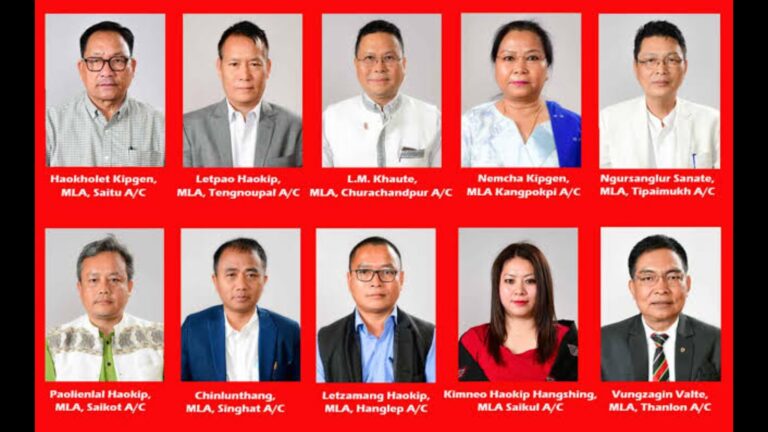FIR Filed Over Lawrence Bishnoi’s Interview Inside Prison
Summary of the News
An FIR has been lodged after an interview of jailed gangster Lawrence Bishnoi was aired, raising concerns about how such an interview was conducted inside the prison. The incident has drawn attention to the conditions and the management of the jail, sparking further discussions about security protocols and media access within prisons.
Lawrence Bishnoi’s Interview Sparks Controversy: How Did It Happen Inside Jail?
Introduction
In a shocking turn of events, an interview with notorious gangster Lawrence Bishnoi, conducted inside prison, recently aired, causing an uproar. Bishnoi, a well-known figure with multiple criminal cases to his name, managed to give an interview while incarcerated. This incident raises a lot of questions about prison security, media ethics, and how something like this could even take place.
In this article, we will delve into the key aspects of the incident, analyze the implications for prison management, and explore the broader legal and ethical concerns surrounding this controversial interview.
Who Is Lawrence Bishnoi?
A Notorious Criminal
Lawrence Bishnoi is a name that rings fear in many parts of India, especially in the state of Punjab. Bishnoi has been implicated in a number of serious criminal activities, including organized crime, extortion, and even plots to assassinate public figures. His notoriety grew over time, making him a central figure in India’s underworld.
Although he’s been behind bars for a while, his criminal influence is thought to extend beyond the walls of the prison, which only adds to the concern surrounding this recent interview.
His Criminal Empire
Even from within prison, Bishnoi is rumored to control a vast network of criminals operating in various states. Reports have linked him to high-profile incidents, and his name is often brought up when discussing criminal syndicates in India. This only adds weight to the controversy surrounding the recent interview.
How does a man like Bishnoi, with such a heavy criminal record, get the opportunity to speak to the media from behind bars? This is the question on everyone’s mind.
The Prison Interview: How Did It Happen?
The Details of the Interview
The crux of the issue lies in how an incarcerated gangster managed to give an interview from within the confines of a high-security prison. Inmates, particularly those with criminal backgrounds as serious as Bishnoi’s, are not supposed to have access to the outside world in this way.
The interview itself, which aired on television and spread across social media, shows Bishnoi calmly discussing his life, his crimes, and the justice system. His candidness, however, is what shocked viewers. It wasn’t just the fact that he was interviewed—it was how relaxed and open he seemed about his activities.
Breach of Security?
The incident has left many questioning the security protocols within India’s prisons. How could such an interview have been arranged without the knowledge of prison officials? Was this a lapse in prison management, or was there insider help involved?
For something of this nature to happen, there must have been either a failure in prison security or intentional complicity. Either way, the authorities have been put in the hot seat, and immediate action is being demanded.
FIR Lodged: What Does This Mean for the Case?
Legal Ramifications
Following the release of the interview, an FIR was filed against the unknown persons responsible for arranging and broadcasting it. The complaint seeks to uncover how the interview was conducted and who was behind it. If found guilty, the culprits could face legal consequences for breaching prison protocols and facilitating the interview.
Filing an FIR is the first step in the legal process. Authorities are expected to launch a full-scale investigation into the incident, with jail officials and media personnel likely to be scrutinized for their roles.
Implications for Prison Management
This case highlights severe gaps in prison management, especially when it comes to high-profile inmates like Lawrence Bishnoi. The FIR could lead to a complete overhaul of how prisons are monitored, how inmates are treated, and how external access (like media interviews) is controlled.
The incident serves as a wake-up call for prison authorities across the country to tighten their security measures.
The Role of the Media: Ethical Concerns
Was the Interview Justified?
One of the main questions being asked is whether the media acted ethically in conducting this interview. Journalists have a responsibility to report news that serves the public interest, but at what cost? Some argue that giving a platform to a criminal, especially one like Bishnoi, is irresponsible and glorifies crime.
On the flip side, others argue that the public has the right to know, and this interview provides valuable insights into the criminal justice system. Regardless of where you stand, this interview highlights the tricky balance the media must maintain between informing the public and adhering to ethical standards.
Public Reactions to the Interview
Reactions to the interview have been mixed. Some people are appalled by the fact that a criminal could speak so freely from behind bars, while others are more concerned about the lack of oversight in prisons. Public outrage has been mounting, especially on social media, where many are calling for an investigation into how the interview was conducted.
What Happens Next?
The Investigation into the Prison
The FIR marks the beginning of what is expected to be a thorough investigation into how such a breach of security could occur. Jail authorities, security personnel, and even media organizations will likely be questioned.
The Indian legal system will be closely monitoring this case, as it could set a precedent for how such incidents are handled in the future. Any findings from the investigation will likely lead to stricter rules and protocols to prevent something like this from happening again.
Possible Reforms in the System
This incident may serve as the catalyst for much-needed reforms in the Indian prison system. High-profile inmates like Bishnoi often continue to wield influence from behind bars, and this interview is proof that they can find ways to bypass the system.
Calls for stricter monitoring, better technology, and more transparency in prisons are likely to gain traction in the wake of this controversy.
Conclusion: A Stark Reminder of the Gaps in Prison Security
The interview of Lawrence Bishnoi from inside prison is not just a media sensation—it’s a stark reminder of the weaknesses within India’s prison system. The fact that a criminal could speak freely about his past, his influence, and his life from behind bars is alarming.
As investigations continue, one can only hope that this incident leads to stronger security protocols, greater accountability, and reforms that ensure no such breach happens again.
FAQs
- Why is Lawrence Bishnoi so notorious?
Lawrence Bishnoi is infamous for his involvement in organized crime, extortion, and high-profile criminal activities, making him one of India’s most feared gangsters. - How did the interview happen inside prison?
The details are still unclear, but an investigation is underway to determine how Bishnoi managed to give the interview, which is seen as a major breach of prison security. - What is an FIR, and why was it filed?
An FIR (First Information Report) is a legal document filed when a crime is reported. In this case, it was filed to investigate how the interview was conducted inside the jail. - What are the ethical concerns regarding this interview?
The interview raises ethical concerns about whether the media should give a platform to notorious criminals and if it inadvertently glorifies their activities. - What will happen next in this case?
An investigation is ongoing, and those found responsible for arranging the interview could face legal consequences. The case may also lead to reforms in prison security protocols.



